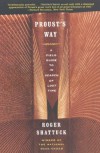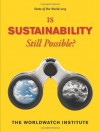Currently reading
Swann's Way
Snow Country
Proust's Way: A Field Guide to In Search of Lost Time
The Mind At Night: The New Science Of How And Why We Dream
The Magic Mountain
Semiotics and the Philosophy of Language (Advances in Semiotics)
Persona: A Biography of Yukio Mishima
The Inquisition of Climate Science
State of the World 2013: Is Sustainability Still Possible?
Media Studies: Texts, Institutions and Audiences
 < -<-<- < <i>-<-<- This or.... This or...this->->-->->- http://www.youtube.com/watch?v=0pPoRnjFC6E&feature=related
< -<-<- < <i>-<-<- This or.... This or...this->->-->->- http://www.youtube.com/watch?v=0pPoRnjFC6E&feature=relatedPersonally, I lean more towards the latter camp. Lewis does at least make a good, solid, and sophisticated effort to address the problem of: "Why does God allow so much pain and suffering, if He is really a loving God, and if He really does exist?"; - which is why Lewis gets 3 stars, even if I don't completely agree.
I remember quite liking his argument at the time I read it, which was quite some time ago. He seemed to be saying that pain is sent to test a person, to make you stronger, to help you grow spiritually so that you could become a more spiritually evolved and aware person.
But, I have in the meantime started wondering: on the other hand, what kind of cruel deity would devise such a system, that includes such horrible suffering as the world has seen? Even if it is to make them 'stronger', or cause them to grow spiritually.
Lewis's argument, IMO, would hold water better if you reckoned re-incarnation into the system. Then it would make more sense to throw obstacles into the path of a soul in it's evolutionary journey towards Nirvana.
..but in the Christian world, where the most common doctrine I have heard, is that all you need to do is to proclaim Jesus as your savior to win an automatic seat in heaven, no need for you to grow spiritually, it doesn't seem to fit in quite 100%.
I must admit that I do like the idea of spiritual growth, such as presented in this book, and in The Pilgrim's Progress, for instance.
Unfortunately, now that I am older, wiser, and seen more suffering in both myself and others, I'm not quite as inured to Lewis's arguments, and not quite so eager to welcome pain and suffering.
PS. After reading a bit of Thomas Aquinas, I realized that Lewis borrows a LOT from him.










